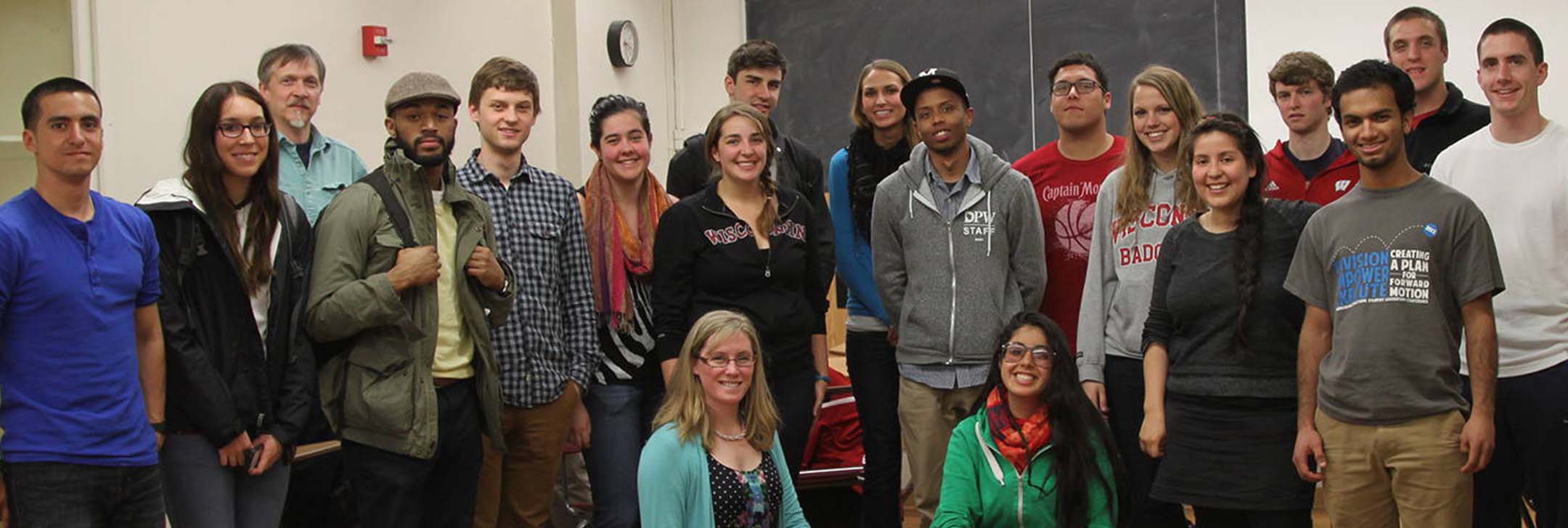
What began as a modest, needs-based scholarship program in 2010 has grown into a vital and vibrant service- and learning-oriented opportunity for UW–Madison students who wish to unite their passion for the environment with a commitment to society.
The Community Environmental Scholars Program (CESP) at the Nelson Institute for Environmental Studies focuses on Badgers from underrepresented communities, first-generation college students, returning adult students, and veterans. Participating scholars take a one-credit seminar each semester that introduces them to local organizations, provides them with professional training, and offers them a place to examine the connections between environmental studies and community service. Since it was created, CESP has funded 254 students pursuing 67 different majors, reaching far beyond the Nelson Institute.
“Because students participate in CESP for at least three semesters, they really get to build a community in the program,” says Robert Beattie ’81, CESP academic coordinator and instructor. “At a large university like UW–Madison, having an opportunity to see the same people is huge; it builds connections across majors and life experiences in ways that you just don’t find in other parts of the university. And we know it matters, because CESP students stay connected through social media networks long after graduation.”
The program is limited to 10 to 15 new students per year. And for Badgers with financial need, there are scholarship funds available. The first student cohort graduated in 2011, and Mia McKinney ’11 was among them. “By no means would I be where I am now without CESP,” she shares. “I got a full scholarship to Georgia Tech through relationships I cultivated through CESP.” Opening doors to students like McKinney equips those students with the knowledge that the term environment means a lot more than just nature.
Support received from Wisconsin’s Normal School Fund; a National Science Foundation Scholarships in Science, Technology, Engineering, and Mathematics grant; and generous donors is making CESP possible for generations of Badgers. Participants collaborate with a cohort of peers who are dedicated to addressing environmental challenges. They have preferred access to special capstone courses, which offer hands-on learning experiences, helping students become catalysts for change. From environmental justice to food scarcity and wildlife conservation, CESP is encouraging young adults from communities all over the state to learn about the benefits of an education in environmental studies. “It is not an exaggeration to say that the Nelson Institute has been the best thing to ever happen to my educational journey,” says Mariah Antigone ’22. “I had been interested in social and environmental determinants of health for years, but studying at the Nelson Institute broadened those concepts for me in ways I never imagined.”
